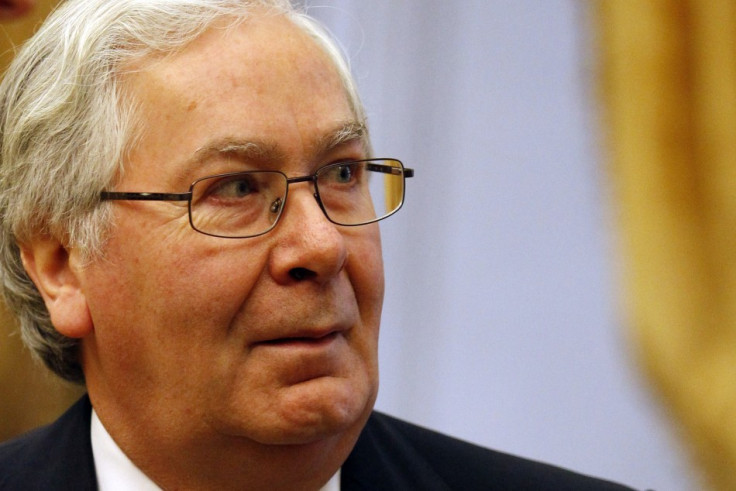The One Safe Bet: Uncertain Bank of England Will Get Forecasts Wrong Again

If Getting Things Wrong was an Olympic event, the Democratic Policymakers Republic of the Bank of England, led by Dear Leader Mervyn King, would harbour more gold than Gordon Brown could ever have dreamed of selling off.
Another inflation report and another set of revised forecasts from the Bank of England.
In just a year, the Bank has managed to slash its overall GDP forecast from around 2 percent growth in 2012, to near zero.
And it isn't just the GDP forecasts that have repeatedly false started, the Bank has disqualified its inflation guesses, too.
Inflation was meant to have sunk past the government's 2 percent target by the middle of 2012, but it is now predicted to reach this mark some time in the first half of next year.
Perhaps in a year's time, when the impact of the ever-increasing quantitative easing is being felt, we will look back on these latest guesses and laugh. Or maybe cry.
If August's Quarterly Inflation Report could be summed up in one pithy sentence it would be: "We don't really know what is going to happen and it is all Europe's fault, so blame them not us."
It is littered with the written equivalent of someone letting off a big sigh, blowing a raspberry and shrugging their shoulders.
The Bank, which lest we forget sets monetary policy designed to guide and protect the recession-mired UK economy, admits that "it is difficult to know why both output and productivity have remained so weak"
UK employment is "puzzlingly robust" according to the Bank, while there is "still considerable uncertainty regarding the evolution of underlying productivity".
The report also notes that the Bank's projections for GDP do not take into account the very-real prospect of "the most extreme outturns associated with euro-area developments" - such as the disorderly exit of a member state - because policymakers see "no meaningful way to calibrate the size and likeliness of such an event".
There are clear admissions of a Bank blind-spot to the realities of our economic climate and the path we are hopelessly limping down.
Months of negative GDP figures are described as "unanticipated weakness".
Perhaps worryingly, the uncertainty spreads to the Bank of England's current policy push to get the economy moving again.
Its Funding for Lending Scheme (FLS) sees banks offered cheap rates on loans from the Bank of England to UK banks.
Banks can borrow up to the value of 5 percent of their total existing loan liabilities to the so-called "real economy" of consumers and businesses.
Then, as a bank increases its lending to the real economy at lowered rates, so the value of discounted Bank of England loans they can access goes up in correlation.
This credit easing policy is designed to free up more affordable lending from clammed-up banks, fearful of taking on extra lending risk given the dreary economic backdrop, by offering a financial incentive.
Yet the inflation report, true to Bank of England form, bemoans the uncertainty in the effectiveness of FLS.
"The timing and extent of pass-through to lending rates is uncertain," said the report.
"For example, it is possible that some banks raising funding through the Scheme will take the opportunity to boost profits and capital rather than lowering lending rates, although healthier capital rates would still yield a longer-term benefit."
So the Bank has no good idea about how financial institutions will use FLS and they may simply hoard the cash to boost their own margins, which seems an unstable foundation on which to rest billions of pounds.
Come the next Quarterly Inflation Report, or the Things We're Not Sure About Journal, as it will soon be known, it would not be unfair to anticipate more revisions and uncertainty.
© Copyright IBTimes 2025. All rights reserved.






















